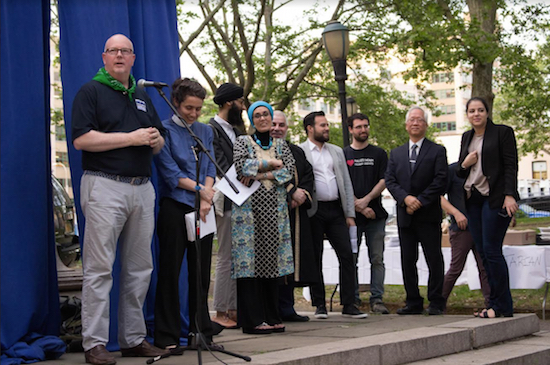Iftar break-the-fast at Cadman Plaza Park draws 350 from many faith traditions
“When There’s A Will There’s a Way”: Groups Raised $10,000 in Short Time

It was a huge picnic in the park, and it was open to the community.
Last Saturday, June 10, several hundred New Yorkers — Muslims and people of other faiths — gathered at Cadman Plaza Park’s north end (near the Gaynor Memorial plaque) in Downtown Brooklyn to break — together — the daily fast that Muslims observe during Ramadan. More importantly, they gathered to show solidarity with Muslims in the wake of several anti-Islam rallies and protests, including one that took place earlier on Saturday at Foley Square in Manhattan. New York was one of several cities selected for the June 10 protests.
By contrast, the Iftar was organized to “respond to hate with love.” Organizers and sponsors included the Interfaith Center of New York, NY Disaster Interfaith Services, and the Muslim Community Network.

Brooklyn Boro
View MoreNew York City’s most populous borough, Brooklyn, is home to nearly 2.6 million residents. If Brooklyn were an independent city it would be the fourth largest city in the United States. While Brooklyn has become the epitome of ‘cool and hip’ in recent years, for those that were born here, raised families here and improved communities over the years, Brooklyn has never been ‘uncool’.